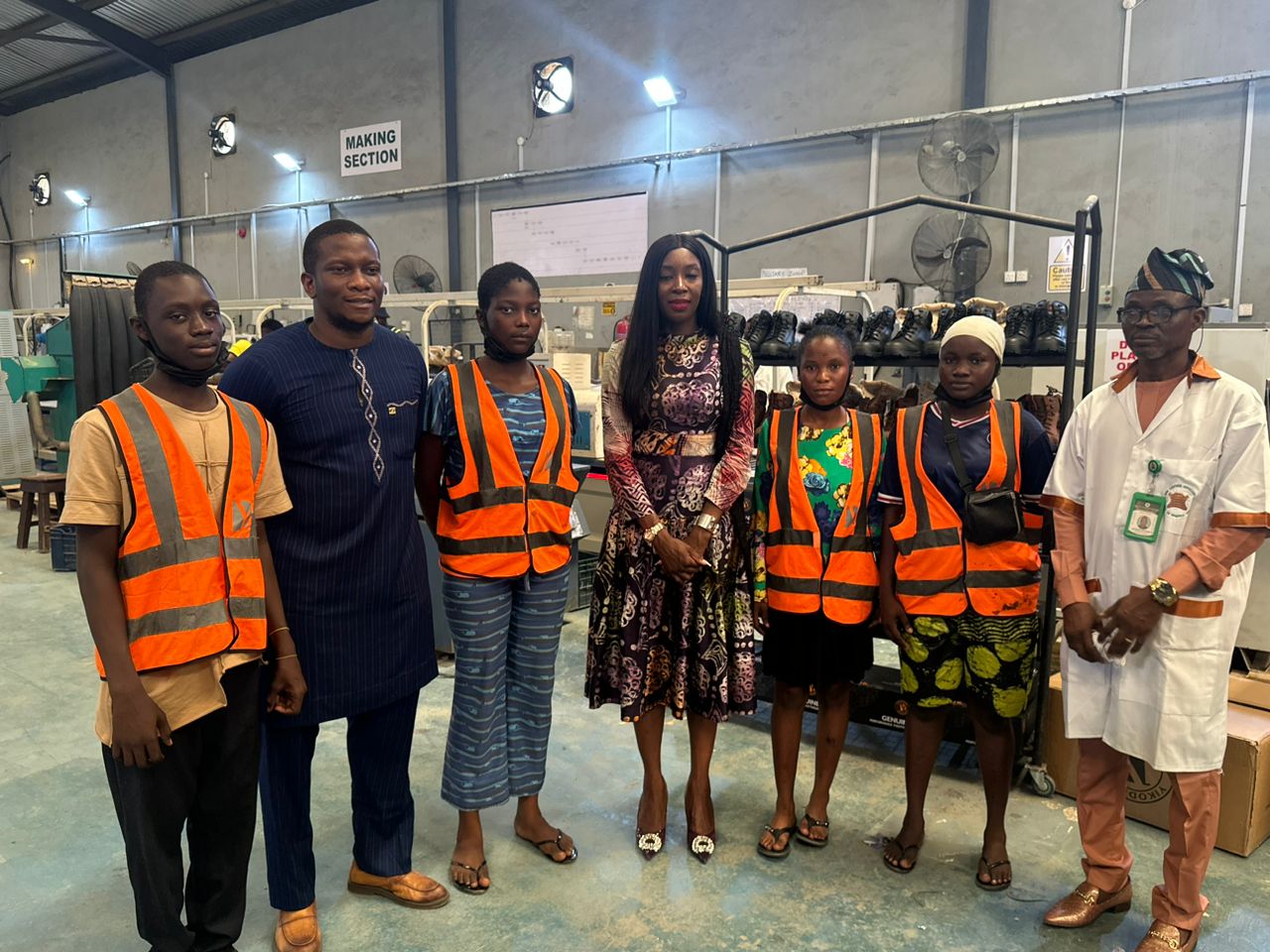
The Senior Special Assistant to the President on Technical, Vocational and Entrepreneurship Education (TVEE), Abiola Arogundade, yesterday, kicked off the training of 100 Lagosians in shoemaking and leather crafting at the factory in Ejigbo, Lagos.
The one-month training is in partnership with Atunde Samsudeen Olayinka, who is the Manager and Chief Executive Officer (CEO) of the company.
Arogundade said that the aim of the programme was to equip aspiring artisans with a robust skill set encompassing facets of leatherworking.
The programme, structured as a month-long intensive training, will run from Mondays to Saturdays between 9.00 a.m. and 2.00 p.m. She said: “We are doing this to create more economic activities in the country.
After this training, the factory will employ 50 of the trainees to work in the factory while the rest 50 people will have access to non-collateral loan through one of the intervention the government has put together in the office of the SSA to the President on job creation.
“Everything is free; they get free training, feeding is taken care of, all they need to do is to learn. We are training citizens in all the 36 states in Nigeria and the FCT.”
What we do is to go into a state and find out about what is profitable in the state and train people on that. We are matching training to job and we will continue to launch programmes across the country.
Olayinka, who spoke on the collaboration, said: “Over the years, we have been trying to impact our community and we figured out that it will be good to have a partnership with the government to train more and make it trickle down beyond our community.
“After the training on shoemaking, we will take the students on finance courses so they can understand numbers and sales.”
Speaking on the cost of training, he said: “The cost of training a student is about N200,000 for two months and they will be able to make good shoes after the training.
When asked about the production strength of the company, he said: “Depending on the style, we make up to 300 shoes per day. We make about 500 military/para military boots and we have 80 workers.
Speaking on the challenges faced in production, he said: “We still have power issue. We spend a lot on power. The forex is a challenge because the prices of raw materials goes up but we spend more of our resources on power so, we are calling on the government for more improved industrial polices, to push for patronage, local products. “We manufacture boots that meet international standard. We want more patronage to help us to grow as a company and help us to make impacts.”
One of the beneficiaries, Ojomo Oluwaseyi Samuel, said: “I believe that I will be trained coming here. The environment is conducive for learning and I believe that I will gain the needed knowledge and become a professional in shoe making.
“We want the SSA to talk to thew president to come up with varieties of opportunities and training for the Nigerian youths.






